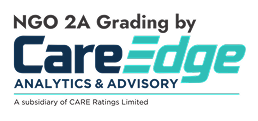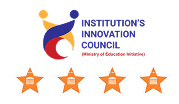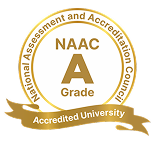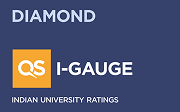OPEN HOUSE 2026 Click here

OPEN HOUSE 2026 Click here

ADMISSION ENQUIRY - 2026
Theory of Computation
GANPAT UNIVERSITY |
|||||||||||||||
|
FACULTY OF ENGINEERING & TECHNOLOGY |
|||||||||||||||
|
Programme |
Bachelor of Technology |
Branch/Spec. |
Computer Science & Engineering (CBA/ /BDA/CS) |
||||||||||||
|
Semester |
VI |
Version |
1.1.1.1 |
||||||||||||
|
Effective from Academic Year |
2022– 23 |
Effective for the batch Admitted in |
June 2020 |
||||||||||||
|
Subject code |
2CSE601 |
Subject Name |
Theory of Computation |
||||||||||||
|
Teaching scheme |
Examination scheme (Marks) |
||||||||||||||
|
(Per week) |
Lecture (DT) |
Practical (Lab.) |
Total |
CE |
SEE |
Total |
|||||||||
|
L |
TU |
P |
TW |
||||||||||||
|
Credit |
3 |
1 |
0 |
0 |
4 |
Theory |
40 |
60 |
100 |
||||||
|
Hours |
3 |
1 |
0 |
0 |
4 |
Practical |
00 |
00 |
00 |
||||||
|
Pre-requisites: |
|||||||||||||||
|
Engineering Mathematics, Data structures and Algorithms |
|||||||||||||||
|
Learning Outcome: |
|||||||||||||||
|
After learning the course, the students should be able to:
|
|||||||||||||||
|
Theory syllabus |
|||||||||||||||
|
Unit |
Content |
Hrs |
|||||||||||||
|
1 |
Review of Mathematical Background Sets, Functions, Logical statements, Proofs, Relations, Languages, The Principle of Mathematical induction, Recursive definitions. |
3 |
|||||||||||||
|
2 |
Regular Languages and Finite Automata Regular expressions, Regular languages, Memory required to recognize a language, Finite automata, Distinguishable strings, Union, intersection and complement of regular languages, Automata with output-Moore machine, Mealy machine. |
8 |
|||||||||||||
|
3 |
Nondeterminism and Kleen’s Theorem Non-deterministic finite automata, non-deterministic finite automata with ^ transitions, Kleen's theorem- Part-1 |
8 |
|||||||||||||
|
4 |
Regular and Non-Regular Language Minimization of Finite automata, non-regular and regular languages, Pumping Lemma, Decision problems and decision algorithms, regular languages in relation to programming languages |
8 |
|||||||||||||
|
5 |
Context-Free/Non-Context Free Languages and Push-Down Automata Context-free languages, Regular Grammars, Derivation tree and ambiguity, An Unambiguous CFG, Simplified and Normal forms, Chomsky normal form, Chomsky Classification of Grammars. |
6 |
|||||||||||||
|
6 |
Pushdown Automata and CFL Push -Down Automata, Deterministic PDA, Types of acceptances and their equivalence, Equivalence of CFG and PDA, parsing, Non-CFL and CFL, Pumping Lemma for CFL, Intersection and Complement of CFL |
8 |
|||||||||||||
|
7 |
Turing Machine Models of computation, Combining TMs, Computing a function with TMs. Variations on Turing Machines, doubly infinite and more than one Tapes, Non-deterministic and Universal TM |
5 |
|||||||||||||
|
Self-Study |
|||||||||||||||
|
Non-deterministic and Universal Turing Machine |
|||||||||||||||
|
Mooc Course |
|||||||||||||||
|
Course Name: Theory of Computation |
|||||||||||||||
|
Text Books |
|||||||||||||||
|
1 |
Introduction to Languages and Theory of Computation: By John C. Martin |
||||||||||||||
|
Reference Books |
|||||||||||||||
|
1 |
Computation: Finite and Infinite: By Marvin L. Minsky, Prentice-Hall |
||||||||||||||
|
2 |
Introduction to formal languages: By G. E. Reevsz, Mc-graw hill |
||||||||||||||
|
3 |
Introduction to Formal Language Theory: By M.H. Harrison |
||||||||||||||
|
Course Outcomes: |
||||||||||||||||||||||||||||||||||||||||||||||||||||||||||||||||||
|
COs |
Description |
|||||||||||||||||||||||||||||||||||||||||||||||||||||||||||||||||
|
CO1 |
Introduce the mathematical foundations of computation including automata theory |
|||||||||||||||||||||||||||||||||||||||||||||||||||||||||||||||||
|
CO2 |
Differentiate and give examples for the different types of automata like finite automata, push down automata, linear bounded automata and Turing machine |
|||||||||||||||||||||||||||||||||||||||||||||||||||||||||||||||||
|
CO3 |
Correlate the different types of automata to real world applications |
|||||||||||||||||||||||||||||||||||||||||||||||||||||||||||||||||
|
CO4 |
Choose and design appropriate automata for the different requirements outlined by theoretical computer science |
|||||||||||||||||||||||||||||||||||||||||||||||||||||||||||||||||
|
Mapping of CO and PO:
|
||||||||||||||||||||||||||||||||||||||||||||||||||||||||||||||||||






